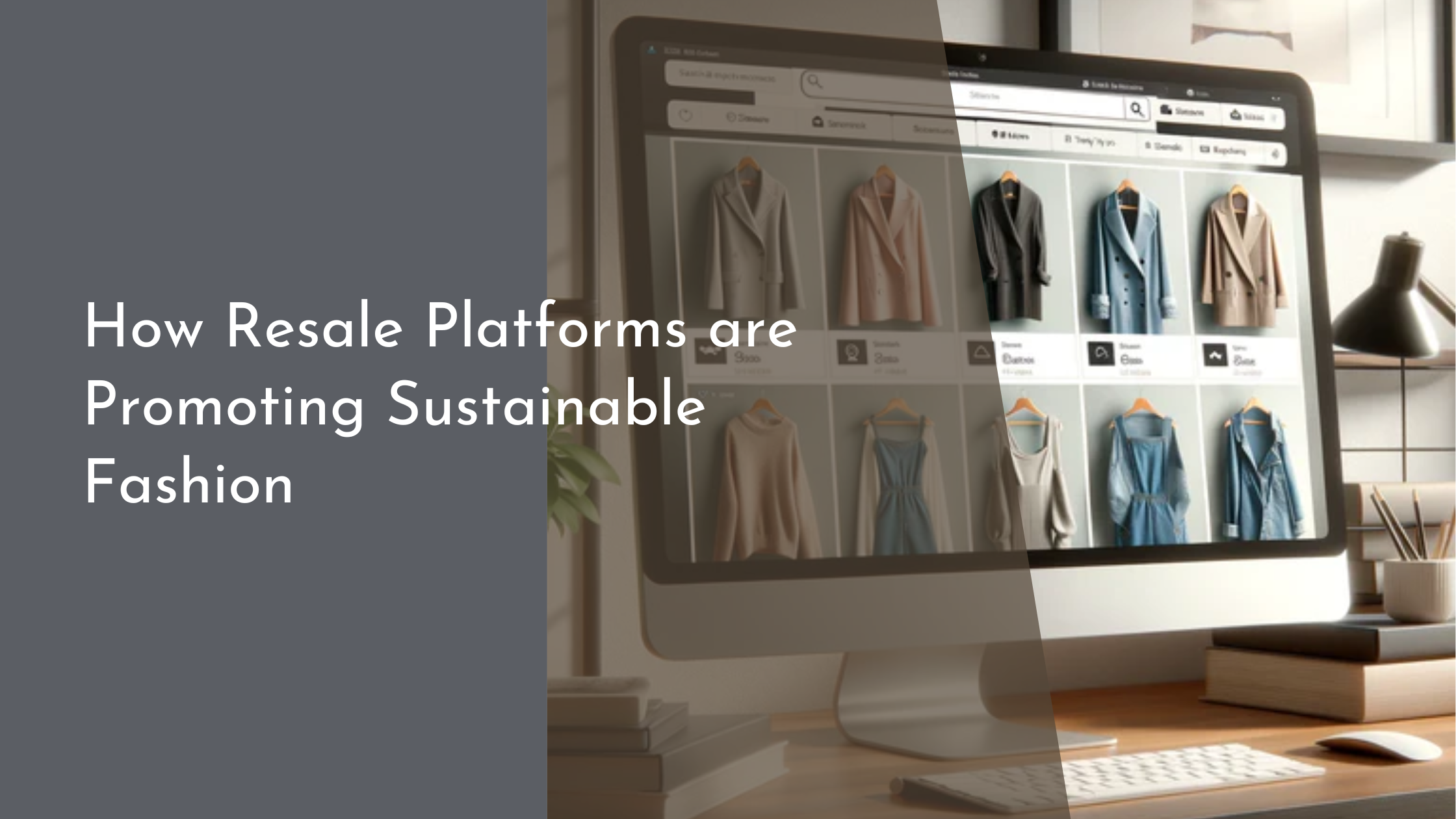How Resale Platforms are Promoting Sustainable Fashion
In recent years, the fashion industry has witnessed a remarkable shift towards sustainability, driven by growing consumer awareness and the urgent need to mitigate environmental impact. At the forefront of this transformation are resale platforms, which have emerged as key players in promoting sustainable fashion. These digital marketplaces offer consumers an opportunity to buy and sell pre-loved clothing, thereby extending the lifespan of fashion items and reducing waste. In this article, we’ll explore how resale platforms are paving the way for a more sustainable fashion future.
The Rise of Resale: A Step Towards Sustainability
The concept of resale is not new, but its popularity has surged in recent years as consumers become more conscious of their environmental footprint. Resale platforms, such as Depop, ThredUp, and Poshmark, have tapped into this demand by providing seamless and accessible ways for individuals to buy and sell secondhand clothing. This model encourages the circular economy, where fashion items are reused and recycled, rather than ending up in landfills. As a result, resale has become a simple yet powerful step towards sustainability for both consumers and the fashion industry.
Moreover, the rise of these platforms signifies a cultural shift in how society views pre-owned items. What was once considered a last resort is now celebrated as a trendy and responsible way to shop. Influencers and celebrities endorsing secondhand fashion have further accelerated this trend, normalizing the idea of giving clothes a second life. As resale platforms continue to gain traction, they are not only reshaping consumer habits but also challenging the traditional linear fashion model, which heavily relies on mass production and disposal.
How Resale Platforms Are Changing Fashion Trends
Resale platforms are actively reshaping fashion trends by creating a space where diverse styles and eras coexist. Unlike traditional retail that often prioritizes the newest trends, resale platforms offer a wide array of options, from vintage pieces to contemporary designer items. This democratization of fashion allows consumers to experiment with their personal style without being restricted by current trends. As a result, fashion becomes more about individual expression rather than conforming to seasonal fads.
Additionally, the community-driven nature of these platforms fosters a sense of connection among users. Buyers and sellers often engage in conversations about the stories behind the clothes, creating a more meaningful shopping experience. This emphasis on storytelling and personal connection encourages consumers to value their purchases more deeply, thus promoting mindful consumption. By shifting the focus from fast fashion to quality, timeless pieces, resale platforms are gradually steering fashion towards a more sustainable and inclusive future.
The Environmental Impact of Secondhand Shopping
Shopping secondhand significantly reduces the environmental impact associated with fashion, which is one of the most resource-intensive industries. Resale platforms contribute to decreasing the demand for new clothing production, which in turn lessens the consumption of water, energy, and raw materials. By choosing to extend the life of existing garments, consumers play a vital role in reducing the carbon footprint of the fashion industry.
Furthermore, secondhand shopping helps combat the growing issue of textile waste. In many parts of the world, clothing is discarded at an alarming rate, with millions of tons ending up in landfills each year. Resale platforms address this by encouraging a mindset shift from disposability to longevity. As more individuals opt for preloved fashion, the cycle of overconsumption slows, mitigating the negative impact on the environment and contributing to a more sustainable ecosystem.
Embracing a Greener Future Through Resale Fashion
The success of resale platforms highlights a promising shift towards more sustainable fashion practices. As these platforms continue to grow, they are encouraging brands and retailers to rethink their approaches to production and consumption. Many fashion companies are beginning to partner with resale platforms or launch their own resale initiatives, recognizing the value of integrating sustainability into their business models. This collaboration between traditional retail and resale is paving the way for a more circular fashion industry.
Consumers also play a crucial role in embracing this greener future. By choosing to participate in the resale economy, individuals can actively contribute to reducing fashion’s environmental impact. As awareness spreads and more people understand the benefits of sustainable fashion, the collective effort can lead to substantial change. Embracing resale fashion is not just about buying secondhand—it’s about adopting a mindset that values quality, sustainability, and the long-term impact of our fashion choices.
The rise of resale platforms marks a significant step forward in the journey towards sustainable fashion. By promoting the reuse and recycling of clothing, these platforms are challenging the fast fashion model and encouraging a more conscious approach to style. As consumers become more attuned to the environmental impact of their shopping habits, the demand for resale is likely to continue its upward trajectory. Ultimately, the shift towards resale fashion reflects a broader movement towards sustainability, one where fashion is not only about personal expression but also about caring for the planet.

